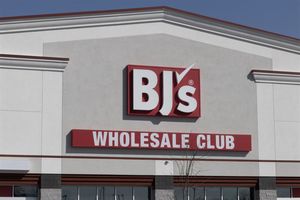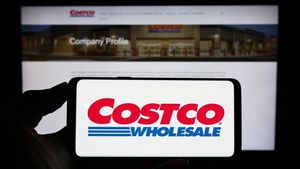Financial News
Sequana Medical Announces First U.S. Commercial alfapump® Implantation at Mount Sinai Hospital in New York
Ghent, Belgium, Nov. 24, 2025 (GLOBE NEWSWIRE) --
- Milestone in bringing breakthrough treatment option to US patients with recurrent and refractory ascites due to liver cirrhosis
- Feedback from hepatology community supports US market potential from this large and growing market driven by obesity
- Key step in validation of Sequana Medical’s strategy of targeting US transplant centers through its specialty commercial team
- Continued strong progress in US commercial roll-out
Sequana Medical NV (Euronext Brussels: SEQUA, the “Company” or “Sequana Medical”), a pioneer in the treatment of drug-resistant fluid overload in liver disease, heart failure and cancer, today announced the successful completion of the first commercial implantation of the alfapump® System in the United States. This is a key milestone in Sequana Medical’s U.S commercial roll-out following receipt of Premarket Approval (PMA) from the FDA. The alfapump System is the first active implantable medical device approved in the U.S. for the treatment of recurrent or refractory ascites due to liver cirrhosis that automatically and continuously removes ascites fluid from the abdomen into the bladder.
The successful implantation was completed at Mount Sinai Hospital in New York where the team specializes in advanced procedures for patients with liver disease. Sequana Medical is executing its focused commercialization strategy through a specialty salesforce initially targeting the 90 U.S. liver transplant centers that perform more than 90% of liver transplants. Sequana Medical continues to make strong progress in the roll-out of this strategy as demonstrated by the number of hospitals trained and the progress in approvals to implant at these centers.
Recurrent or refractory ascites is a severe condition characterized by the accumulation of fluid in the abdomen. The current standard treatment involves therapeutic paracentesis, an invasive and burdensome procedure that drains ascites from the abdomen using a large needle. This procedure often needs to be repeated weekly or monthly, requiring frequent hospital visits and causing significant disruption to patients’ daily lives.1 Sequana Medical estimates there are approximately 70,000 patients in the U.S. with recurrent or refractory ascites, representing a market opportunity in excess of $2 billion for the alfapump, forecast to reach 130,000 patients and over $5 billion by 2035, primarily driven by NASH/MASH and alcoholic liver disease.2
Dr. Rahul Patel, Assistant Professor of Radiology and Surgery at Icahn School of Medicine at Mount Sinai, commented: “The alfapump represents a significant advancement for our patients suffering from recurrent ascites. For too long, these patients have had to put up with repeated needle punctures, burdensome procedures to drain the ascites fluid. With the alfapump system, patients have this done automatically and continuously, avoiding the punctures and the hospital visits, and maintaining a flat abdomen. This groundbreaking technology offers our patients the potential for improved quality of life and reduced hospital visits, which is truly transformative for managing this challenging condition.”
Ian Crosbie, Chief Executive Officer of Sequana Medical, continued: “Today marks a pivotal moment in Sequana Medical’s journey with our first commercial US implant. We are proud that it is taking place at Mount Sinai Hospital in New York, a top-tier US hospital with such a strong reputation in the field of hepatology and interventional radiology. Following years of investment in clinical development and laying the commercial foundations, we are positioned to deliver a breakthrough in the treatment of recurrent or refractory ascites due to liver cirrhosis. Having recently returned from the annual meeting of the AASLD (American Association for the Study of Liver Diseases) in Washington DC, I am more excited than ever about the US market opportunity for the alfapump. At the meeting, I met with many US hepatologists and time after time I heard they share our vision of the alfapump replacing repeated puncture paracentesis in many of their patients. alfapump is a twenty-first century solution for the large and growing patient population that has clear unmet clinical needs and I am confident that we can capture significant market share and drive meaningful revenue growth.”
For more information, please contact:
Sequana Medical
Investor relations
E: IR@sequanamedical.com
T: +44 (0) 797 342 9917
Media Relations:
Josephine Galatioto
ICR Healthcare
E: Sequana@icrhealthcare.com
T: +1 (332) 242-4388
Important Safety Information
Indication for Use: The alfapump® System is intended for single patient use only in adult patients with refractory or recurrent ascites due to liver cirrhosis. It is indicated for the removal of excess peritoneal fluid from the peritoneal cavity into the bladder, where it can be eliminated through normal urination.
Contraindications: MRI Safety Information: The alfapump® System is MRI unsafe. This diagnostic procedure is contraindicated due to possible movement of the alfapump®, damage to the pump circuitry, tissue damage in the vicinity of the alfapump® and/or catheter dislocation. Hyperbaric oxygen therapy is contraindicated because the environmental conditions entailed in this therapy are out of the defined range of use for the alfapump® System.
Warnings, Risks, and Precautions: The implantation of the alfapump® may result in infection that could delay liver transplant or impact transplant listing status. Additional risks associated with implanting the alfapump® System including risk of peritoneal cavity infections/peritonitis, Coagulopathy, Small bladder capacity and/or obstructive uropathy. The following procedures or therapies could impact the alfapump® System function: Supersonic therapy and high-frequency heat therapy, Transcutaneous Electrical Nerve Stimulation (TENS), Lithotripsy, Defibrillation, Radiation therapy, Electrocautery, or use of other implantable medical devices and wearable devices.
Adverse Events: In addition to procedure related risks the following Adverse Events may occur: pump pocket hematoma, skin erosion, infection, pump migration, catheter clogging or other catheter complications resulting in tissue damage or loss of or change in therapy, genito-urinary complications, reduced kidney function, hepatic encephalopathy, progression of liver disease, and other systemic effects.
Caution: the law restricts the sale by or on the order of a physician. Refer to package insert provided with the product for complete Instructions for Use, Contraindications, Potential Adverse Effects, Warnings and Precautions prior to using this product.
DSR® therapy is still in development and is currently not approved in any country. The safety and effectiveness of DSR® therapy has not been established.
Note: alfapump® and DSR® are registered trademarks.
About Sequana Medical
Sequana Medical NV is a pioneer in treating fluid overload, a serious and frequent clinical complication in patients with liver disease, heart failure and cancer. This causes major medical issues including increased mortality, repeated hospitalizations, severe pain, difficulty breathing and restricted mobility. Although diuretics are standard of care, they become ineffective, intolerable or exacerbate the problem in many patients. There are limited effective treatment options, resulting in poor clinical outcomes, high costs and a major impact on their quality of life. Sequana Medical is seeking to provide innovative treatment options for this large and growing “diuretic resistant” patient population. alfapump® and DSR® are Sequana Medical’s proprietary platforms that work with the body to treat diuretic-resistant fluid overload, and are intended to deliver major clinical and quality of life benefits for patients, while reducing costs for healthcare systems.
The Company received US FDA approval for the alfapump System for the treatment of recurrent or refractory ascites due to liver cirrhosis in December 2024, following the grant of FDA Breakthrough Device Designation in 2019. In Sequana Medical’s POSEIDON study, a landmark study across 18 centers in the US and Canada, the pivotal cohort of 40 patients implanted with the alfapump showed at 6 and 24 months post-implantation the virtual elimination of therapeutic paracentesis and an improvement in quality of life3, 4.
Sequana Medical is commercializing the alfapump through a specialty commercial team initially targeting US liver transplant centers – 90 of these centers perform more than 90% of US liver transplants annually. In August 2025, CMS announced that it approved the New Technology Add-on Payment for the alfapump when performed in the hospital inpatient setting as of October 1, 2025.
Results of the Company’s RED DESERT and SAHARA proof-of-concept studies in heart failure published in European Journal of Heart Failure in April 2024 support DSR’s mechanism of action as breaking the vicious cycle of cardiorenal syndrome. All three patients from the non-randomized cohort of MOJAVE, a US randomized controlled multi-center Phase 1/2a clinical study, have been successfully treated with DSR, resulting in a dramatic improvement in diuretic response and virtual elimination of loop diuretic requirements.5 The independent Data Safety Monitoring Board approved the start of the randomized MOJAVE cohort of up to a further 30 patients, which is dependent on securing additional financing.
Sequana Medical is listed on the regulated market of Euronext Brussels (Ticker: SEQUA.BR) and headquartered in Ghent, Belgium. For further information, please visit www.sequanamedical.com.
Forward-looking statements
This press release may contain predictions, estimates or other information that might be considered forward-looking statements. Such forward-looking statements are not guarantees of future performance. These forward-looking statements represent the current judgment of Sequana Medical on what the future holds, and are subject to risks and uncertainties that could cause actual results to differ materially. Sequana Medical expressly disclaims any obligation or undertaking to release any updates or revisions to any forward-looking statements in this press release, except if specifically required to do so by law or regulation. You should not place undue reliance on forward-looking statements, which reflect the opinions of Sequana Medical only as of the date of this press release.
1 Wong F, Bendel E, Sniderman K, et al. Improvement in Quality of Life and Decrease in Large-Volume Paracentesis Requirements With the Automated Low-Flow Ascites Pump. Liver Transpl. 2020;26(5):651-661. doi:10.1002/lt.25724
2 Based on US and Canada market assessment conducted by highly experienced international consulting group
3 alfapump system SSED (summary of safety and effectiveness) PMA 230044
4 as defined by subjective physical health (assessed by SF-36 PCS) and ascites symptoms (assessed by Ascites Q)
5 Data reported in press release of March 25, 2024; mean increase of 326% in six-hour urinary sodium excretion at 3 months follow up vs baseline, and 95% reduction of loop diuretics over same period
Attachments
- Sequana First Patient Release - ENG 24 Nov 2025 vF
- Sequana First Patient Release - NL 24 nov 2025 vF2

More News
View More




Recent Quotes
View More
Quotes delayed at least 20 minutes.
By accessing this page, you agree to the Privacy Policy and Terms Of Service.



